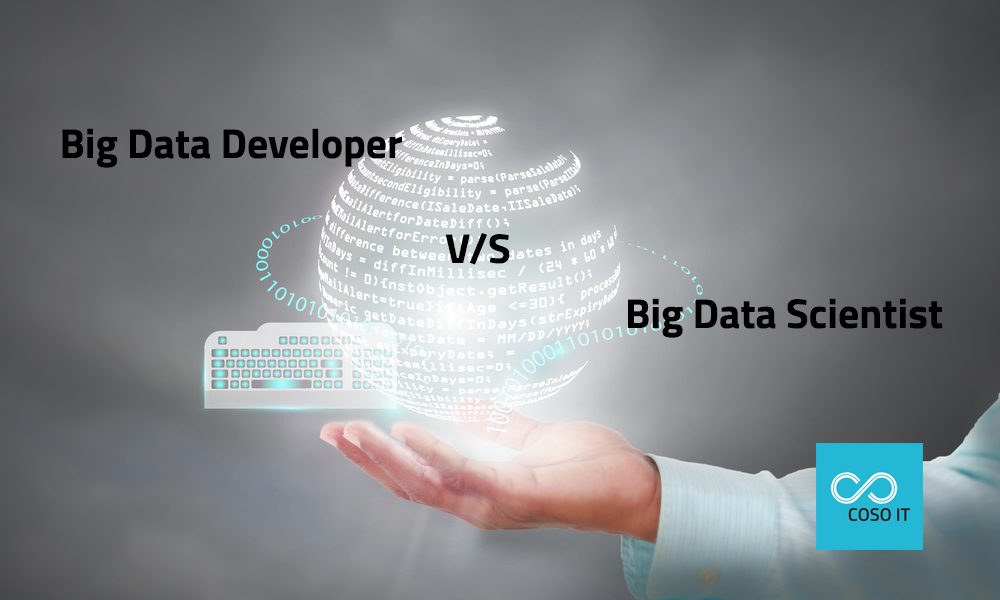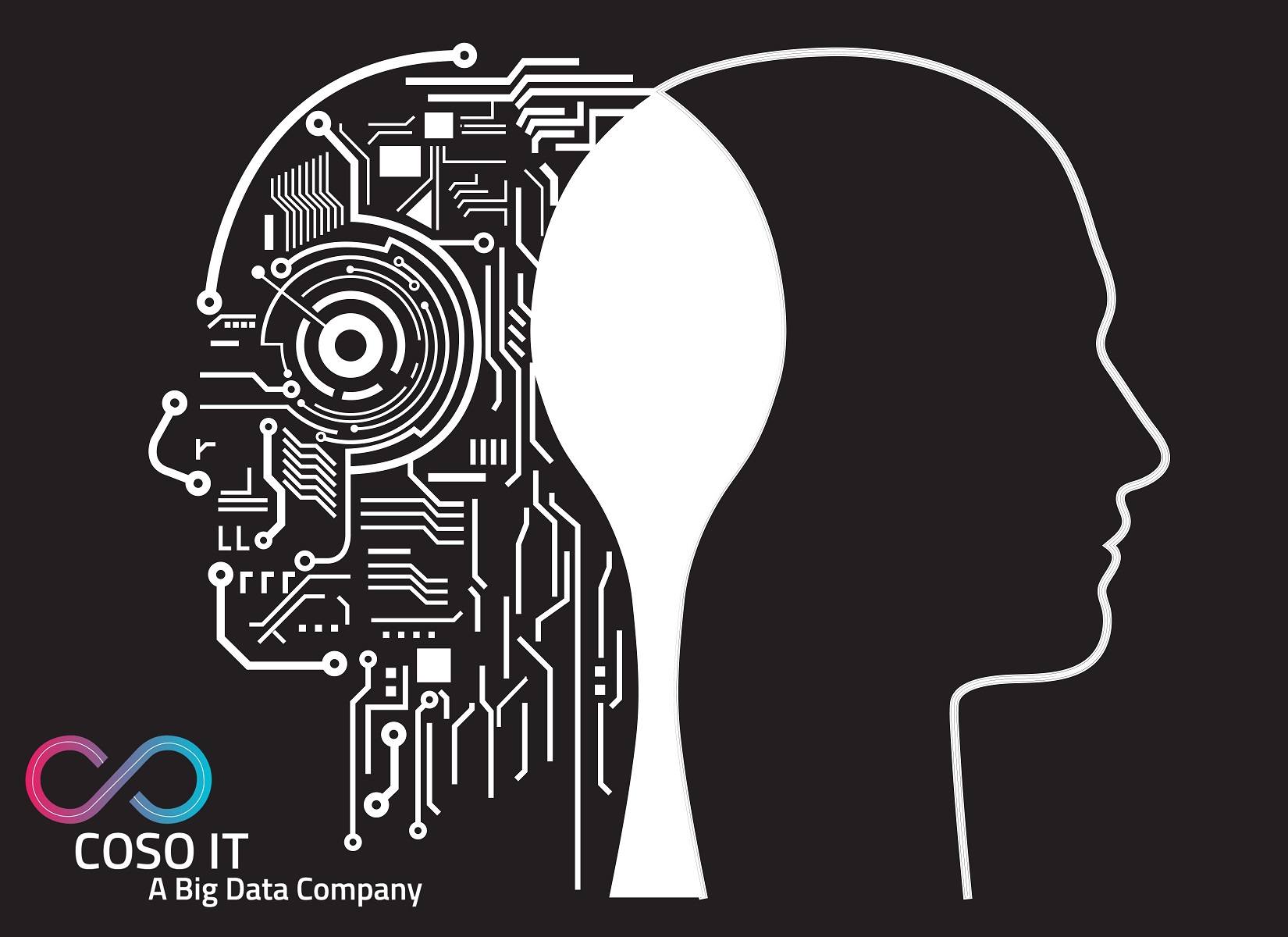Big Data Developer V/S Big Data Scientist

The traditional data handling techniques have failed to deal with the rising humongous amounts of data that generates every second. This has given rise to the emerging and highly popular technology called the Big Data analytics that encompasses several data collection, storing, analysing and visualising techniques. With more and more companies globally are embracing the Big Data analytics for retrieving valuable insights in real time from the constantly generating data, the data centric job roles are on a stupendous surge. With prominent job roles like data analysts, data scientists, Big Data developers, Business Intelligence developers, etc., companies sometimes get entangled between the differences in these job roles and their expectations from candidates applying for such job roles.
While many companies find the job roles of Big Data developer and a Big Data scientist similar, there are several differences that need to be understood by learning their core concept, job responsibilities and the skills that the developer and scientist should be adept at.

Big Data Developer
These are the data professionals who create the Big Data architecture to be analysed by the Big Data Scientists. The Big Data Developers assist in designing, building and integrating data from various resources and manage the huge volumes of data. Complex queries are then written to ensure that it is easily accessible, works seamlessly and fulfils the goal of keeping the performance of the enterprise’s Big Data ecosystem optimal. Big Data Developers also run ETL (Extract, Transform and Load) functions on the Big Data sets for the purpose of creating Big Data warehouses, which can be effectively utilised by the Big Data Scientists for reporting or analysis purposes. In-depth knowledge of databases and data administration along with the ability to develop and maintain data pipelines are the most important aspects of the job of a Big Data Developer.
They have to deal with challenges in terms of database integration and handling the unstructured sets of data and providing it in a clean format to Data Analysts and Data Scientists. Since major portion of the job responsibility revolves around designing and creating architecture, they hardly are expected to have understanding about machine learning.
Key Responsibilities –
- Creating and maintaining flexible and highly scalable database management systems.
- Analysing the company’s Big Data needs for defining and developing processes for data sets and performing data modelling, data mining and production activities.
- Performing extract, transform and load operations for further analysis of data.
- Getting disaster recovery procedures installed and updated regularly.
- Modelling data and designing data architecture.
- Developing customised user specific functions and even analytic applications.
- Building data warehousing solutions and testing the database architecture.
- To improve data efficiency, data reliability and quality of data, a Big Data Developer must proactively make suggestions to deploy various methodologies.

Key Skills & Tools Required –
Big Data Developers are required to be well versed with some essential tools and skills as these can have significant impact on the data pipeline they are working upon. In case a Big Data Developer is at the end of a data pipeline, where the APIs have to be developed for integrating data sets from external sources, their consumption and analysing how this data can affect the company’s strategies, then the Big Data Developer must have knowledge of Python language. Python is the largely used programming language that can be utilised for communicating with data stores like RDBMS or NoSQL. Good understanding of Apache Hadoop and Spark can help these developers in suggesting improved methods for effective data consumption. Here are important skills and tools a Big Data Developer must possess knowledge of:-
- Database designing
- Database warehousing
- Coding
- Data collection & transformation
- NoSQL databases like Cassandra and MongoDB
- Spark and Hadoop and associated tools like HBase, Hive, Pig, etc.
- Pentaho & Javascript
Data Scientist
Termed as one of the sexiest jobs of the 21st century, a Data Scientist is a professional, who is adept in turning massive amounts of raw data into actionable insights. Through intelligent application of statistics, machine learning and analytics methodologies; they help business solve their critical problems by retrieving valuable information from the data generated every second in real time. Data science is not a new field of study and is in fact, considered to be an advanced level of data analysis that is dominated with greater use of machine learning and computer science. The Data Scientist can be described as a master statistician with extensive knowledge in software engineering. In addition to the skills possessed by data analysts, the Data Scientists hold increased ability to design new algorithms, deeper understanding of handling petabytes of real time data and strong programming skills.
The Data Scientists are expected to perform data interpretation skills and deliver the results of their findings via application of data science apps and visualisation techniques. They must also present their findings in a manner that suggests the possible solutions for the existing or forthcoming issues that the business may face. Data Scientists must possess outstanding problem solving skills, which would require them to have in-depth knowledge of traditional and modern data analysis methods that can help in developing statistical models for discovering hidden patterns in data.
Many times, without having a particular business problem to act upon, the Data Scientist may have to explore the data, find patterns and scope of improvement and provide deeper and valuable insights that can have significant impact on strategy designing or decision making process. This can be a difficult task, but if a Data Scientist has great command over the deployed Big Data techniques, then through application of machine learning, statistics, data mining, etc., such kind of analysis can be performed easily. Data Scientist should have experience in handling different data sets of different types and sizes and must know how to apply given set of algorithms on such large sets of data efficiently, while staying abreast with the latest Big Data techniques. This is why knowledge of programming languages, fundamentals of computer science and big or small database technologies is a must.
Key Responsibilities –
- Analyse the business requirements for planning and developing customised Big Data analytics projects.
- Developing new tools and analytical methodologies as and when required.
- For the purpose of data analysis, Data Scientists should create data definitions for new database files and tables.
- Work together with other IT teams to integrate the results of the analysis and communicating them to the higher level management for taking real time decisions.
- Must be knowledgeable in data preparation, developing machine learning algorithms and conducting statistical analysis.
- Data interpretation is a crucial part of a Data Scientist’s job, which should accompany thorough visualisation of data for effective data storytelling.
- Must be an expert in finding critical business questions and searching for solutions through the heaps of data in real time.
- Conducting analysis of dissimilar data to find correlation and presenting the results to the decision making authorities.
Key Skills & Tools Required –
- Expert in Math & Statistics.
- Basic level programming skills.
- Creatively curious.
- Intense business acumen.
- Master in applying and developing machine learning algorithms.
- Data visualization and presenting skills.
- Knowledge of Apache Spark, Hadoop, Scala, data mining tools, programming languages like Python and R is essential.

Leave your comment
Your Comment:
Note: HTML is not translated!